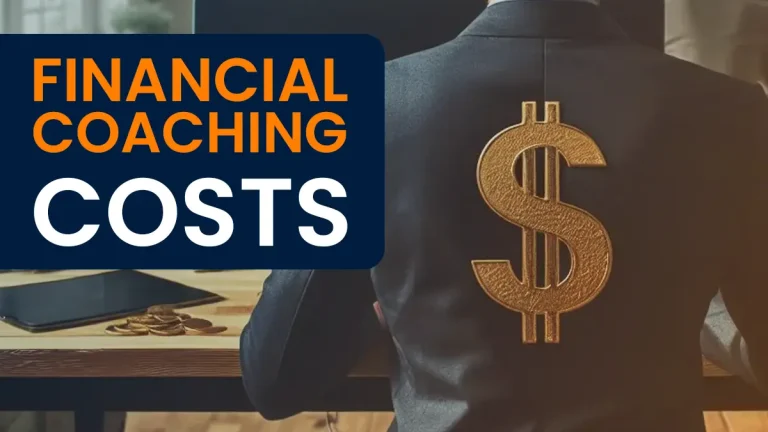Being successful in investing is easy. There is a clear strategy to beat 90% of institutional investors over time without ever even looking at a stock chart: the index fund.
But if it’s so easy & so obvious, why can so few people do it successfully? Let’s dive in.
Why do people fail to buy-and-hold passive index funds?
There are many psychological pitfalls that cause investors to jump, on a whim, from the passive investing ship.
Shiny object syndrome
Shiny object syndrome is the continual pursuit of something new. Be it crypto investing, NFTs, metaverse or AI, there will always be something new that it is tempting to invest in at the expense of your passive index fund.
Keeping up with the joneses (SCT)
Keeping up with the joneses from seeing miraculous (though often temporary) success from someone investing in a new fad can cause some serious FOMO (fear of missing out) and lead you astray.
In the age of social media, this effect is amplified immeasurably. You are no longer keeping up with your neighbors, but the rest of the world.
It might cause your priorities to suddenly change. Now, you need a new car or even a yacht, and index funds simply won’t get you there fast enough.
It is rooted partly in social comparison theory (Festinger, 1954) but may also be a result of having low self-esteem.
Confirmation bias
Confirmation bias can occur as you spend all your time reading about a new wave of asset classes, buying in to the hype of the hivemind.
The solution is to think critically about everything you read and draw on a wide range of sources to make informed decisions. Do not engross yourself completely into a single community.
Gambler’s fallacy
The Gambler’s fallacy happens when you seemingly notice that now is the perfect time to invest in property because house prices have fallen 15% (or insert other investment class here). You believe they have hit the bottom, and suddenly it presents a ‘once in a lifetime’ opportunity.
It is effectively a form of market timing. Investment ‘opportunities’ will appear all the time, but a true passive investor is steadfast in their chosen strategy. If you feel you want to invest in other, riskier assets, this should be a separate budget from the start.
Herd mentality
As mentioned above, 90% of professional investors fail to beat the average market return over time. How can 90% of investors be so wrong? Why do so many follow the pack?
You will be tempted to follow a herd mentality and do as the ‘professionals’ do, many times in your life. Again, assume nothing and think critically about what the right strategy for you is.
This is a form of majority influence (Asch, 1950s). You’ll feel pressured to conform but you must resist.
Failure to fully understand, and believe deeply in, the strategy
It is difficult to have the mental fortitude to endure the bad investing years when you do not have complete confidence in the strategy.
The strategy of buy-and-hold index fund investing is so unbelievably sensible, but it only becomes evident once you fully understand why. It’s important to spend the time reading up on the approach, despite its simplicity.
You may be seeing passive investing recommended everywhere (rightly so) and decide it’s the best approach (correct again), but you still might not understand why.
This might cause you to panic after a few years of downturn. Heck, you might panic after a few weeks – you see it all the time with newbie investors.
Instead, you should change your mindset to, not months, not years, but decades. Adopt a mindset of delayed gratification.
The power of compounding & delayed gratification
As we grow older, the understanding of life’s fleeting nature becomes more and more pronounced. Blink, and a whole decade can pass.
This is difficult for someone in their early 20’s to comprehend. Retirement seems so far away; it’s not worth thinking about.
This is unfortunate as the earlier you start investing, the more time compound interest has to work it’s magic (see how that works by playing with our investment return calculator).
Knowing the immense long-term wealth building power of compound investing makes it easier to embrace a delayed gratification mindset.
Successful buy-and-hold investors exhibit a remarkable ability to delay immediate gains in pursuit of more substantial long-term rewards. They are extremely disciplined and rigidly focused on future outcomes. They plant seeds that will bear fruit decades from now.
Every purchase you make now delivers immediate gratification and a nice rush of dopamine. But know that the $20,000 car you buy does not cost $20,000. Had you invested that money and let it grow for a few decades, it could grow to literally millions (see above calculator).
Therefore, you should consider the opportunity cost of a purchase, not the list price. What are you potentially losing by buying something now, instead of investing that money?
It’s ok to want to live your life and spend on experiences, possessions, friends & family. But realize that true rewards come to those who wait.
Feast or Famine mentality?
Feast and famine mentalities in investing refer to two contrasting approaches to financial decision-making and risk management.
The feast mentality is characterized by a mindset of abundance and overconfidence, where investors may take on excessive risk, make impulsive decisions during periods of market prosperity, and assume that favorable conditions will continue indefinitely.
On the other hand, the famine mentality reflects a mindset of scarcity and fear, often leading to conservative and risk-averse behavior, such as hoarding cash, avoiding investments, or selling assets prematurely due to perceived threats or uncertainties.
With typical investment strategies, you would want a balanced approach. Don’t be over-optimistic, but also don’t let fear drive your decision making.
However, with buy-and-hold investing where you are investing in an index fund or ETF for decades, a ‘balanced approach’ might lead you astray.
Instead, a feast mentality might be optimal, so that you can confidently ride out the inevitable downturns.
- A feast mentality allows you to see the light at the end of the tunnel when things seem bleak. If you can hold your nerve for decades, compounding interest will eventually give you outsized rewards.
- A feast mentality gets you excited about recessions and downturns in the market as it means stocks are on sale – you can now get more for your money knowing that the market will rebound, as it always does.
- A feast mentality means you know there is enough money in the world to go around. There’s enough money even for you, the average joe, to become wealthy.
As mentioned above, when you truly understand why passive investing with index funds is such an incredible investment strategy, a feast mentality is easy. Knowledge of, and belief in, the system breeds confidence.
Don’t just buy a passive index fund, be a passive person
You are not a passive investor by buying an index fund. You are a passive investor if you are a passive person.
You are a passive investor if you ignore the doom and gloom of recession talk and you ignore the hype of cryptocurrency and NFTs (or insert latest fad here).
Any decision you make after setting up your index fund investment is, by definition, an active decision. Even if you are moving from one passive index fund to passive index fund, that is an active decision. You are no longer a passive investor.
You need to choose your path and stick with it. Be a passive person and you will be a successful passive investor.
Emotional resilience
Long-term investors develop emotional resilience and a capacity to detach from short-term market fluctuations.
They recognize that market volatility is part of the investment landscape and avoid knee-jerk reactions based on momentary market movements.
It’s extremely difficult for anyone to see their investment portfolio drop by half in a week. Until it happens to you, it’s hard to know how you will react.
There are two factors in having strong emotional resilience:
- Be ruled by logic, rather than emotion. Easier said than done, but if you can balance your emotional reaction to your investment fluctuations with the logical side of your brain (that understands the philosophy of buy-and-hold) you will keep your emotions at bay.
- Change your relationship to money. You’ve fought hard to build your portfolio to where it is today. You feel every dollar you worked for, and it hurts when it disappears into thin air in a recession. But detach yourself from that money; it’s just numbers on paper. It will ebb and flow, and it should not define you or affect your well-being. The market will recover, and so will you.
Diversification is good for the soul
As we know, building a diversified portfolio across different asset classes and geographies can help mitigate risk.
If you are invested in just 10 companies, and two of them happen to be Kodak and Blockbuster, suddenly 20% of your investment is up to smoke.
You are emotionally invested in the success of just a handful of companies, which is not a good place to be.
But with an index fund, you are invested in thousands of companies. You are detached from any individual company’s success or failure. You may barely notice if 10 of them disappear entirely.
When you are heavily invested in just one asset class, one country, or one individual company, it is very difficult for you to recover psychologically from a big hit to your investment.
When your portfolio is too narrow, you will anchor much of your psyche around the success or failure of these few investments.
That’s one reason why diversification is key to long-term investing success; it reduces your emotional attachment to the investment.
Open-minded to change
This final point goes against everything we have just discussed.
To be a successful buy-and-hold investor, you need to be rigid, dogmatic in your approach and stubborn.
But that does not mean you should be closed off to new information and a changing investing environment.
The index fund did not exist until the mid-1970’s, and today is (in our opinion) by far the best investment vehicle to build wealth.
Before the 1970’s, individual stock picking was THE way to build wealth and The Intelligent Investor (1949) was the bible.
It takes an incredibly open-minded person to abandon this complex strategy for such an incredibly simple one – passive investing.
The vast majority only realize in hindsight that they failed to adapt. They only recognize the merits of the index fund after they’ve wasted decades studying stock charts and p/e ratio’s for average-at-best returns.
It is a strange juxtaposition to end this article on, but an important one. Buy-and-hold is the way to win today, but what about tomorrow?
Errors in psychology are just one of the pitfalls investors make. Check out 7 more mistakes to watch out for here.






